Juli Wood is a Finnish-American saxophonist, vocalist, composer, and band-leader from Chicago, who appears regularly in Chicago and Milwaukee area jazz clubs, on tours through the Midwest with the Juli Wood Quartet, and other groups she leads or is a part of. She plays soprano, tenor and baritone saxophone. Wood makes frequent appearances at Scandinavian jazz and blues festivals including Finland's Pori Jazz festival. Wood got her start in Milwaukee with the R&B Cadets, and gained further exposure with Paul Cebar & the Milwaukeeans—which also featured vocalists Robyn Pluer, and Paul Cebar—who toured between Milwaukee, Chicago, and Minneapolis.

And the Horse They Rode In On is an album by the Minneapolis band Soul Asylum, released in 1990. The vinyl, cassette, and CD versions of the album have different, but related, cover art. The band supported the album with a North American tour. The first single was "Spinnin'".
Paul Cebar is an American songwriter, singer, guitarist and bandleader from Milwaukee, Wisconsin, who plays African, Latin American and Caribbean music. He has released four albums and an EP with his band, Paul Cebar & the Milwaukeeans, which have received airplay from adult album alternative stations across the US, album with all his bands, including the latest incarnation Paul Cebar and Tomorrow Sound, and a solo album.

Angels Running is an album by the American singer-songwriter Patty Larkin, released in 1993. Larkin supported the album with a North American tour.
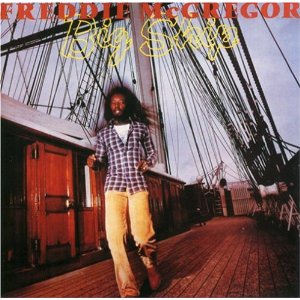
Big Ship is a studio album by the Jamaican musician Freddie McGregor. It was released via Greensleeves Records in 1982. McGregor named his studio after the album. The title track was McGregor's first major hit.

The Prophets is an album by the Ivorian musician Alpha Blondy, released in 1989. He is credited with his band, the Solar System. Blondy sang in French, Dioula, Arabic, and English.

Toots in Memphis is an album by the Jamaican musician Toots Hibbert. Released in 1988, Toots in Memphis was recorded without the Maytals. The majority of the album's tracks are covers of American R&B songs.

Green Suede Shoes is an album by the American band Black 47, released in 1996. It was a commercial disappointment.
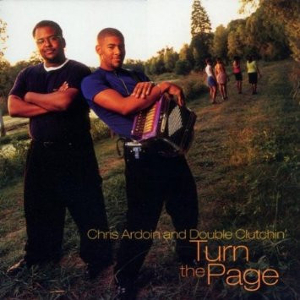
Turn the Page is an album by the American zydeco musician Chris Ardoin, released in 1998. His band, Double Clutchin'—which included his brother, Sean—is also credited. Ardoin was still a teenager when the album was recorded.
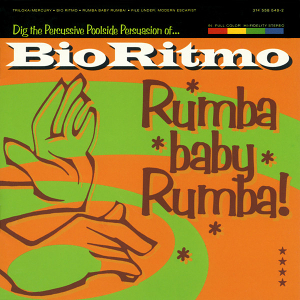
Rumba Baby Rumba! is an album by the American band Bio Ritmo, released in 1998. The band supported the album by touring with Squirrel Nut Zippers.

Very Greasy is an album by the American musician David Lindley, with El Rayo-X, released in 1988. It was Lindley's third studio album with the band.

High Hat is the second album by the American band 6 String Drag, released in 1997. The album cover was created by drummer Ray Duffey.

Spirit of Love is an album by the Nigerian musician Majek Fashek. It was released in 1991. Fashek was credited with the Prisoners of Conscience.

Don Dada is an album by the Jamaican musician Super Cat, released in 1992. It was his first album for a major label, and also one of the first dancehall albums for a major label. The album title refers to Super Cat's nickname.

Barrington is an album by the Jamaican musician Barrington Levy, released in 1993. It was regarded as a crossover attempt. The first single was "Murder". Levy supported the album with a North American tour.

Fish Ain't Bitin' is the second album by the American musician Corey Harris, released in 1997 through Alligator Records. Harris supported the album with a North American tour that included shows opening for B.B. King. Fish Ain't Bitin' won a W. C. Handy Award for the best acoustic blues album of 1997.
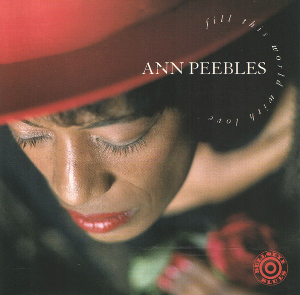
Fill This World with Love is an album by the American musician Ann Peebles, released in 1996. It was her second album for Bullseye Blues. Peebles supported the album with a North American tour, as well as shows in England.

The Silos is an album by the American band the Silos, released in 1990. A commercial disappointment, it was the band's only album for RCA Records. The Silos peaked at No. 141 on the Billboard 200. The band supported the album with a North American tour that included shows with the Jayhawks.
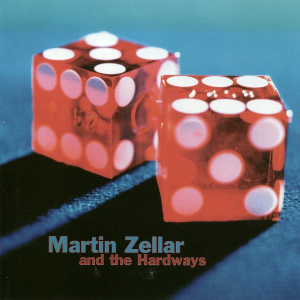
Martin Zellar and the Hardways is an album by Martin Zellar, released in 1996. He is credited with his band, the Hardways. Zellar supported the album with a North American tour. The first single was "I Can't Believe".

Positively Beadhead is an album by the American musician Terrance Simien, released in 1999. Simien supported the album with a North American tour. The album title refers to Simien's practice of throwing beads to his fans during concerts.


















